
Takeshi Hosaka designs tiny house in Tokyo with funnel-like roofs
Architect Takeshi Hosaka has built himself a micro home in Tokyo that has a total floor area of just 19 square metres and features a pair of curved roofs.
Called Love2 House, the single-storey building sits on a plot in the Bunkyo district, which measures just 31 square metres.
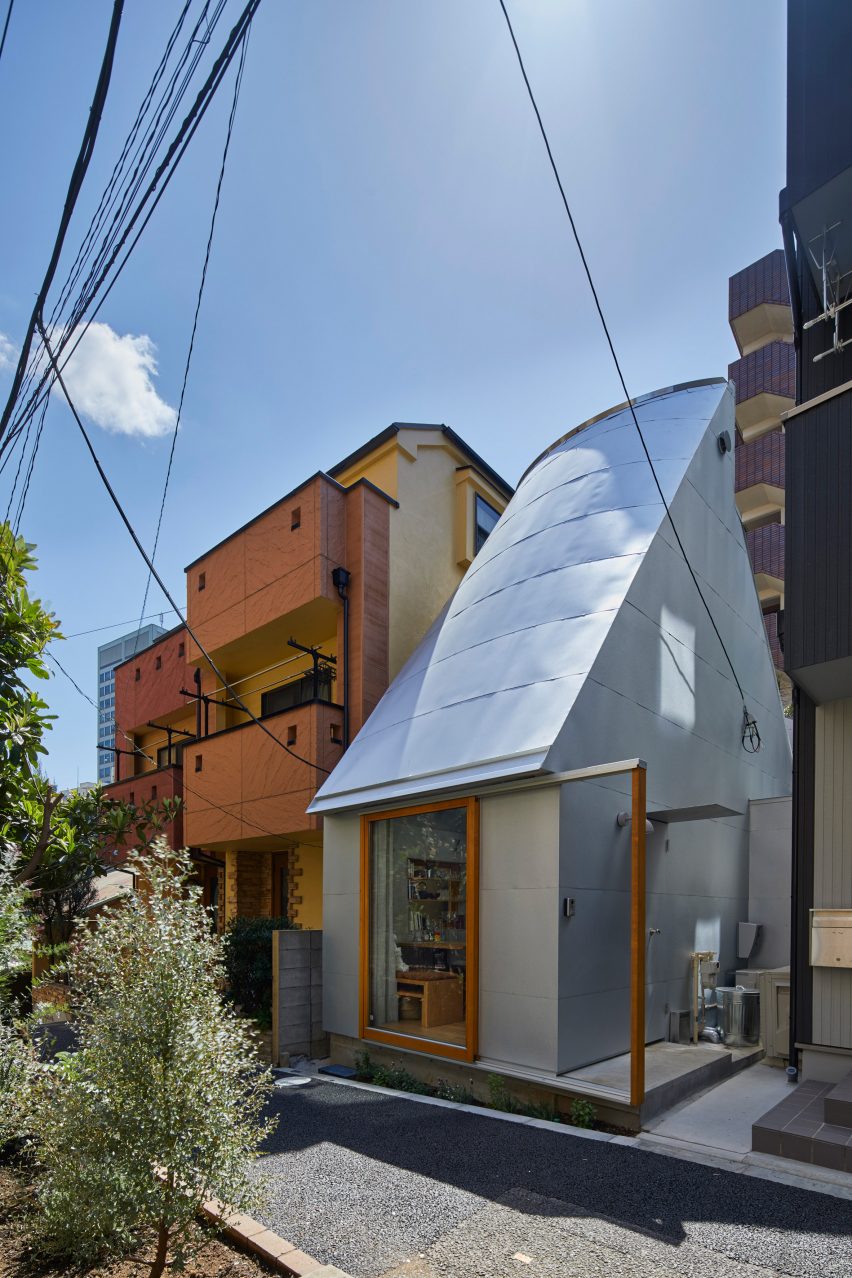
Hosaka and his wife relocated to the city after living in Yokohama for 10 years in a property called Love House, which had a floor area of 38 square metres.
When the architect began a professorship at Waseda University of Art and Architecture in 2015, he decided they needed to move to Tokyo to reduce his commute, but could only acquire this small plot. They called their new, even tinier home Love2 House as a continuation on the theme.
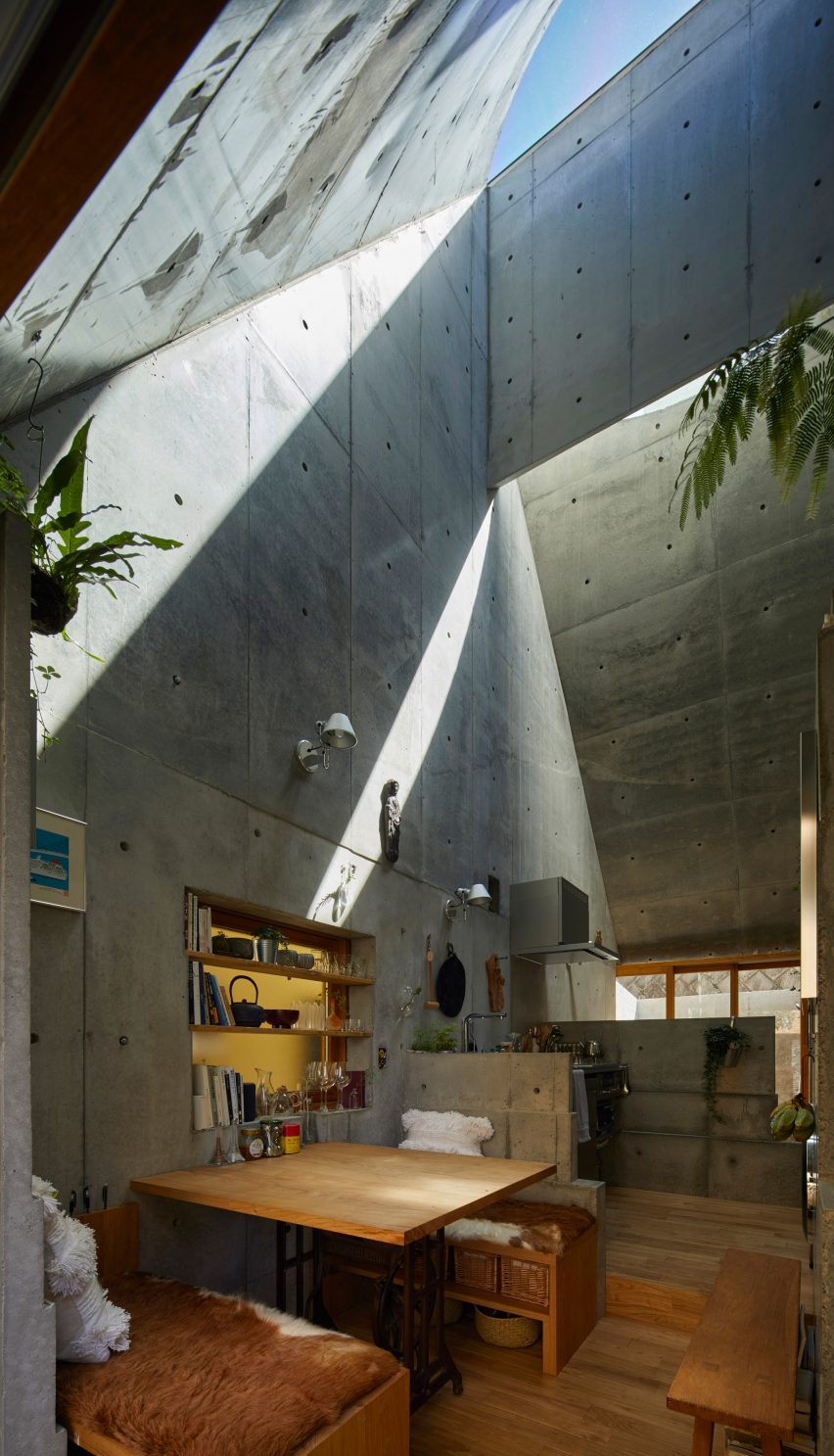
Love2 House's design was influenced by principles borrowed from the architecture of ancient Roman villas, which emphasise the importance of spaces for study, bathing, drama, music and epicureanism – a philosophy of pleasure through modesty.
Within the compact floor area, Hosaka was able to provide space and amenities for the habits he and his wife enjoy most, including eating, reading, daily baths and listening to vinyl records.
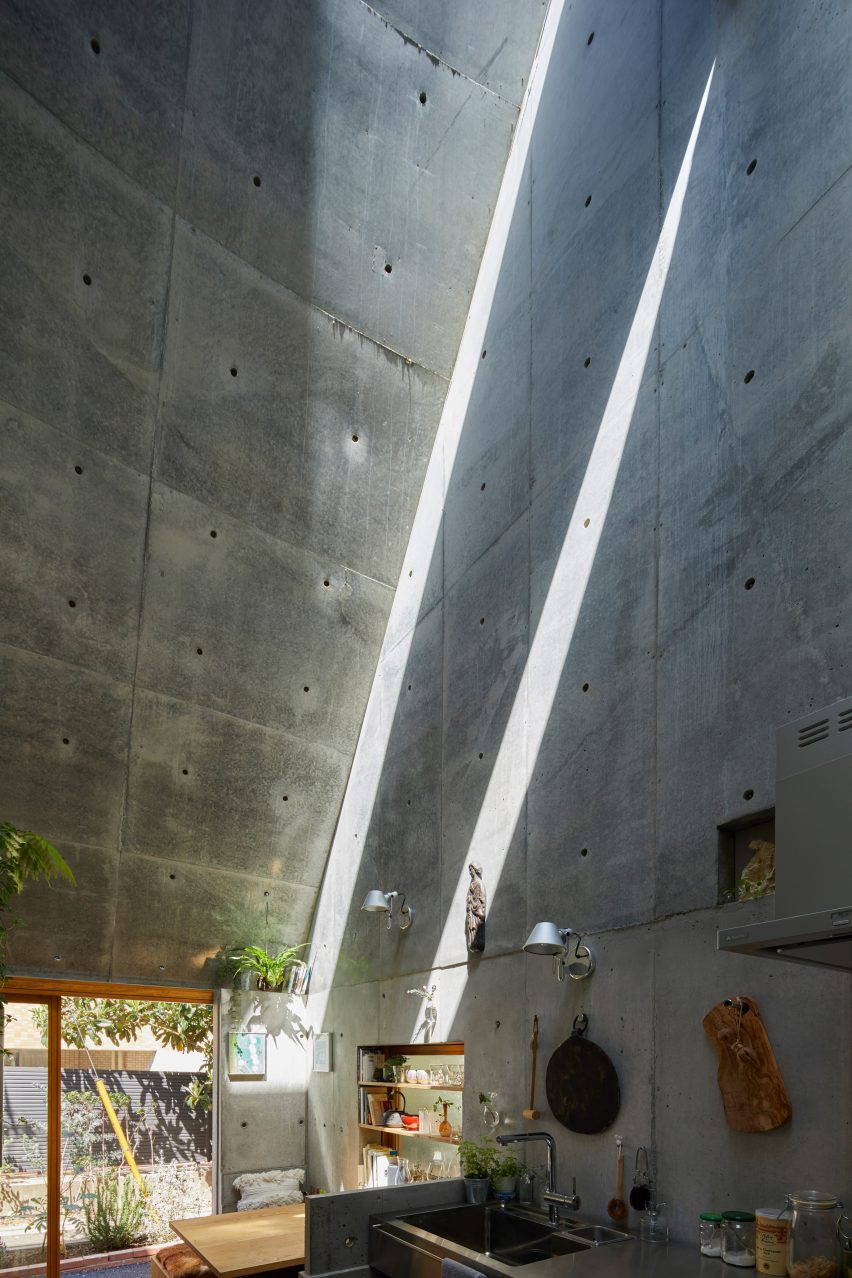
Another key influence came from Scandinavia, as Love2 House's design needed to respond to the fact the building would not receive any direct sunlight for three months during winter.
"This concept led me to draw the sketch of two curved roofs which are open to the sky," said Hosaka.
"In the winter, the two skylights effectively bring soft sunlight into the house and in the summer the house is filled with brilliant sunshine like in a tropical country."
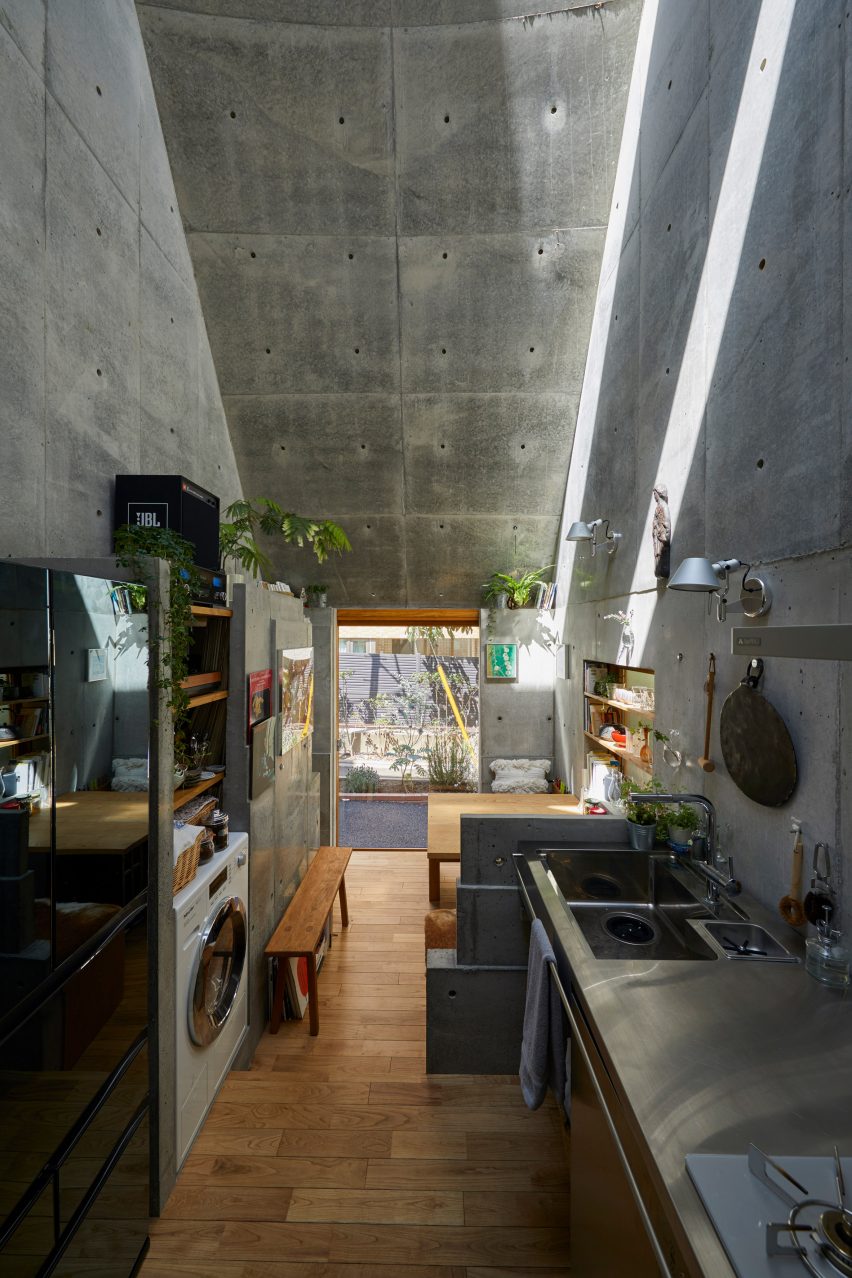
The roof forms are flat at their base edges to complement the style of neighbouring buildings, but curve gradually as they ascend to create the arced openings.
These roofs are clad externally in galvanised aluminium panels. Internally the reinforced concrete structure is left exposed to create a cohesive and uniform space.
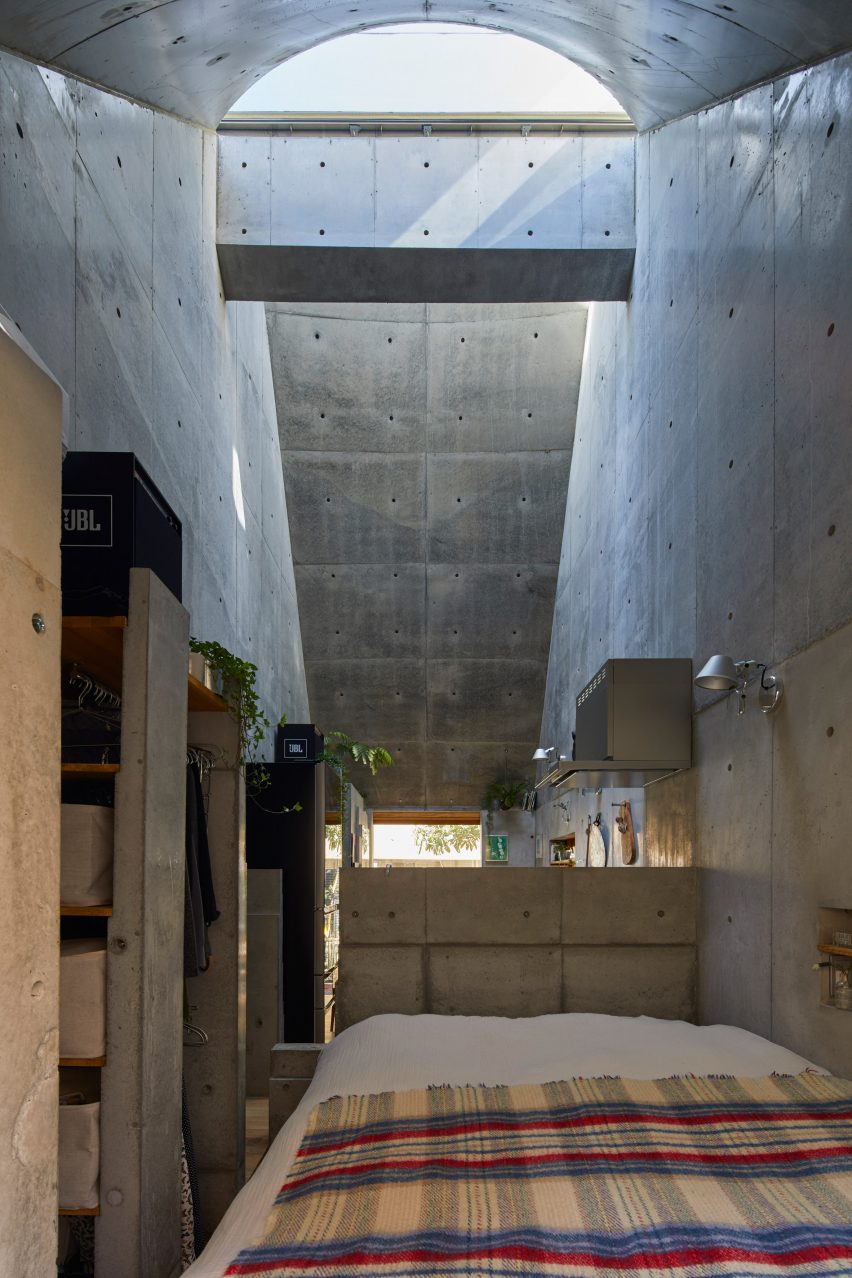
The height of the slanted ceilings enhances the overall volume of the compact interior. Seven partitions extend out from the reinforced-concrete walls to define the dining, kitchen and sleeping zones.
The sense of space inside the building is increased by connecting it with the outdoors through the skylights and a large sliding door lining the living space.
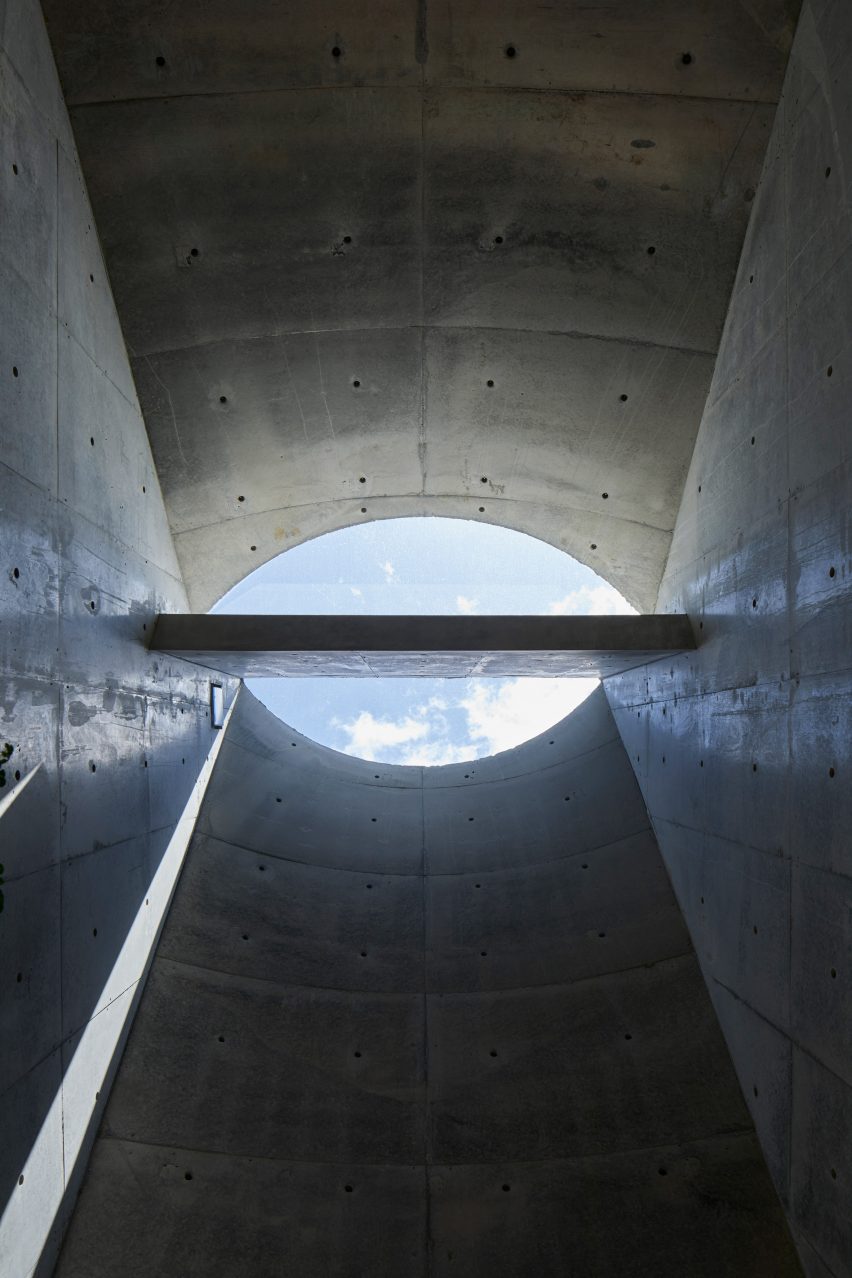
When the door is open, the house's proximity to the road means the interior becomes part of the streetscape, and passers by regularly stop to chat with the couple as they sit at the dining table.
Hosaka's previous residential projects include a house with curving floors punctured by a spiral staircase, and a property with almost a hundred windows scattered across its walls, ceilings and roof.
Photography is by Koji Fujii Nacasa and Partners.
Project credits:
Architect: Takeshi Hosaka
Structural engineers: Kenji Nawa
Client: Takeshi and Megumi Hosaka